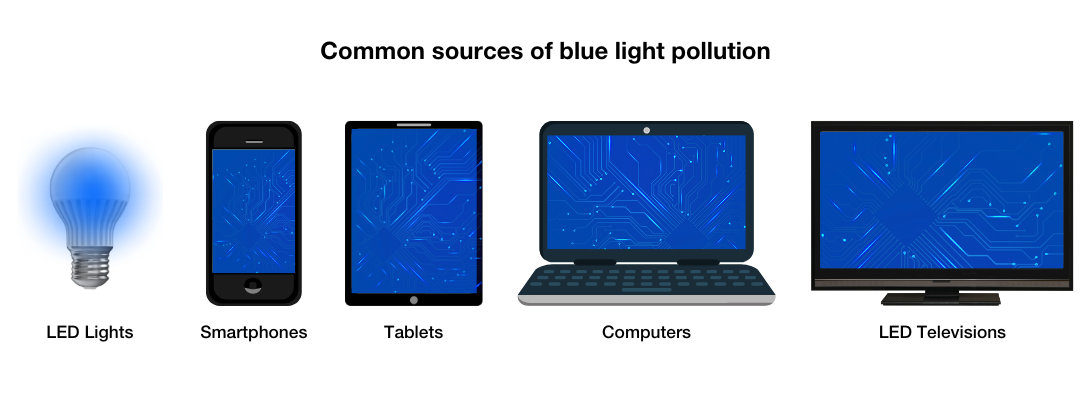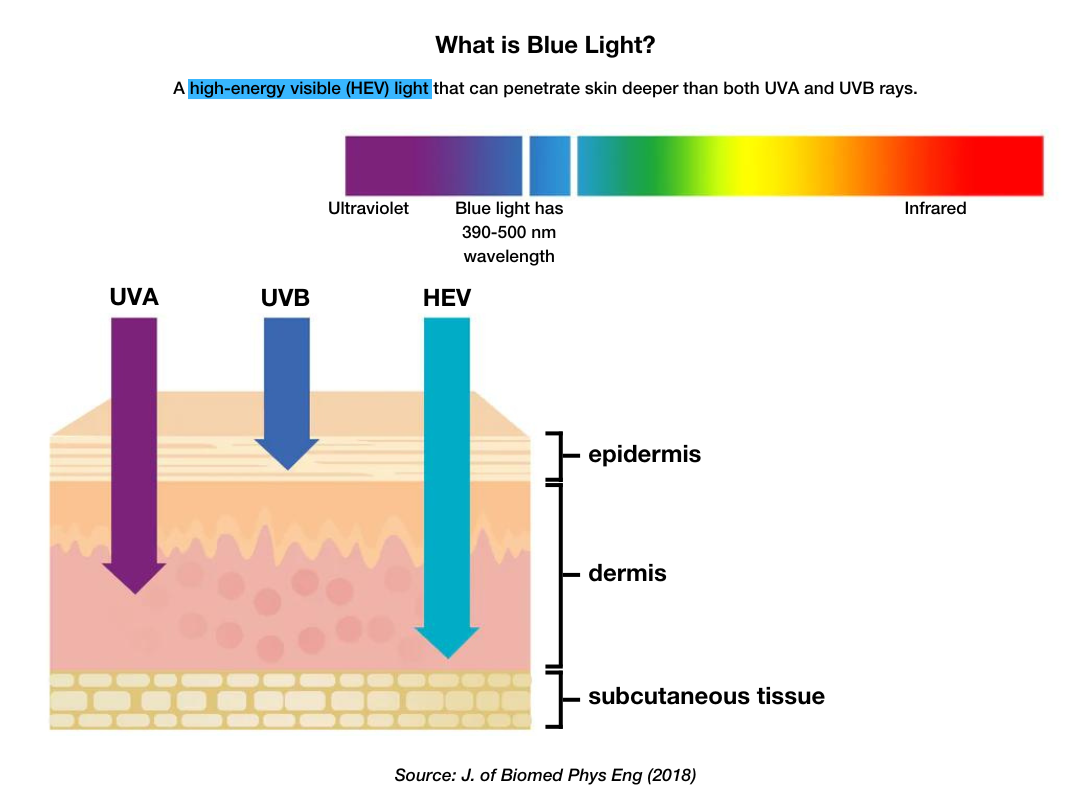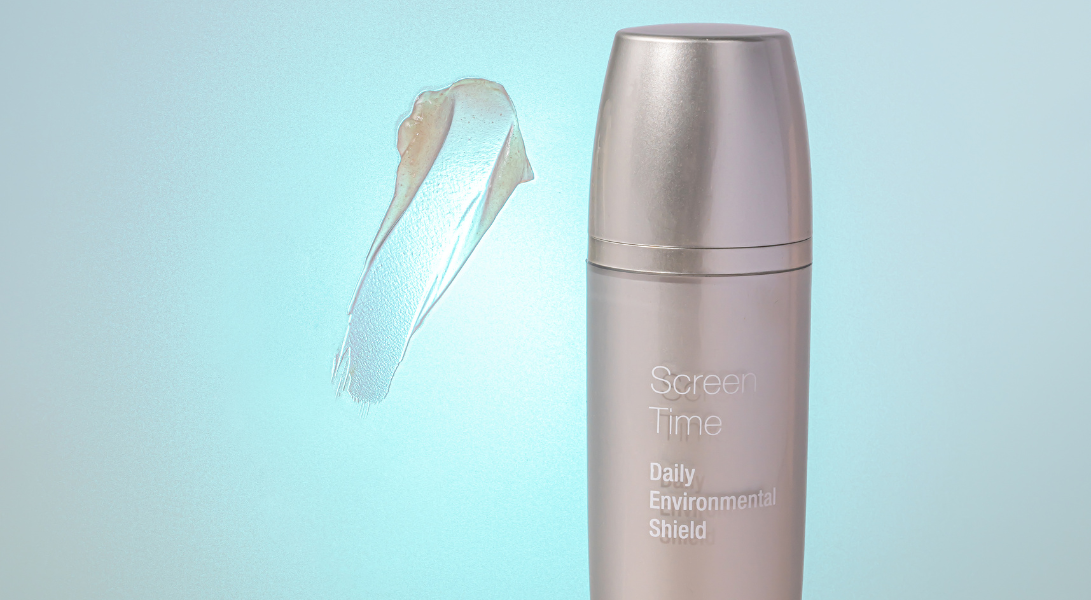What are the worst offenders of devices that emit blue light?
Artificial sources of blue light include various devices and lighting fixtures commonly found in our daily lives. Some of the common sources of blue light pollution include fluorescent lights, illuminated signs, and electronic screens like smartphones, tablets, computers, and LED televisions.

What exactly is blue light pollution?
Blue light pollution refers to the excessive exposure to artificial blue light, particularly during night-time which can have negative impacts on our health, wellbeing, skin and the environment.
Blue light pollution primarily occurs due to the widespread use of artificial lighting sources and electronic devices that emit high levels of blue light.
How does blue light affect/damage our skin?
Blue light can potentially affect our skin in several ways, although the extent of the damage and the mechanisms involved are still being researched. Here are some ways in which blue light may impact the skin:
- Oxidative stress: Blue light exposure can generate reactive oxygen species (ROS) in the skin. ROS are highly reactive molecules that can cause oxidative stress, leading to damage to cellular structures such as DNA, proteins, and lipids. This oxidative stress can contribute to premature aging, including the appearance of fine lines, wrinkles, and age spots.
- Inflammation: Blue light has been shown to induce inflammation in the skin. Inflammatory responses can lead to redness, swelling, and increased sensitivity.
- Disruption of collagen production: Studies suggest that blue light can disrupt collagen synthesis, leading to a reduction in collagen levels over time. This can contribute to skin sagging, loss of elasticity, and the formation of wrinkles.
- Impaired skin barrier function: Blue light exposure has been shown to disrupt the skin's natural barrier function, which helps protect against environmental factors and moisture loss. This can lead to increased skin dryness, sensitivity, and a compromised skin barrier that is more susceptible to damage from external irritants.

What are some of the ingredients to look for in products that help negate some of the effects?
When looking for skincare products that can help mitigate the effects of blue light on the skin, you can consider ingredients that provide antioxidant protection, support the skin's natural barrier function, and promote overall skin health. Here are some ingredients to look for:
- Antioxidants: Antioxidants help neutralize free radicals and reduce oxidative stress caused by blue light exposure.
- Vitamin C: A potent antioxidant that helps brighten the skin, even out skin tone, and protect against environmental damage.
- Physical sunscreens: Using a broad-spectrum sunscreen with physical filters like zinc oxide or titanium dioxide can provide protection for most spectrums of light. These minerals act as a barrier, reflecting and scattering the light away from the skin.
- Red algae: specifically the extract known as Phycocorail, is claimed to have protective properties against blue light. Phycocorail is believed to contain natural pigments that can absorb blue light as well as possess antioxidant properties. Red Algae is found in Dr Naomi Screen Time Daily Environmental Shield.

It's important to note that the efficacy of specific ingredients in mitigating the effects of blue light is still an area of ongoing research. Furthermore, adopting a holistic approach to skincare, including overall sun protection, a healthy lifestyle, and regular skincare routine, can help support the skin's resilience against environmental stressors, including blue light.
Can wearing SPF while using devices help deliver protection or is that a myth?
It's worth noting that the intensity and duration of blue light exposure, as well as an individual's skin type and susceptibility, can influence the extent of the effects on the skin. While more research is needed to fully understand the long-term consequences, it is generally recommended to protect the skin from excessive blue light exposure by using broad-spectrum sunscreen, wearing protective clothing & glasses, and considering blue light-blocking skincare products particularly for individuals who have prolonged exposure to electronic screens or other artificial blue light sources.








